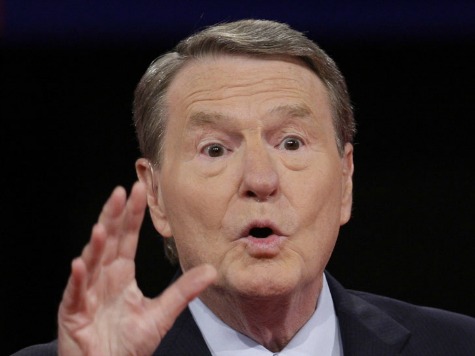
When you’re a Republican, your biggest debate opponent is not the one next to you on the stage but the one in front of you at the moderator’s table.
The moderators help set the outcome for Democrats in three ways: by framing the questions against Republican candidates; by letting Democrats break the rules on time and rebuttals; and by favoring Democrats in post-debate analysis.
The best move in response? Mock the moderator.
It worked for Sen. Scott Brown in 2010, when moderator David Gergen challenged him: “Are you willing… to say, I’m going to be the person, I’m going to sit in Teddy Kennedy’s seat and I’m going to be the person that’s gonna block [health reform] for another fifteen years?”
Brown’s aggressive response won him the election:
“Well, with all due respect, it’s not the Kennedy seat, and it’s not the Democrats’ seat. It’s the people’s seat.”
It also worked for Newt Gingrich in the Republican primaries, helping him surge to a win in South Carolina after putting CNN’s John King in his place for asking about his ex-wife.
“Would you like to take some time to respond to that?” King asked.
“No,” said Gingrich, “but I will… I am appalled that you would begin a presidential debate with a topic like that.”
The media hated it–and the audience loved it, giving Newt a standing ovation.
As the Brown case illustrates, it’s not just conservatives that love a good shot or two at the moderators–it’s everybody.
Though Democrats trust the mainstream media more than most, dislike of journalists and the media in general is widespread. It is the basis of Jon Stewart’s entire comedy routine on “The Daily Show”–which is where, we are told, Generation Y and the Obama-loving millenials get most of their primary information.
There’s a fine art to taking down the corrupt ref, and Sarah Palin played her hand a little too openly, giving disappointed liberals something to criticize after she beat Joe Biden soundly in the 2008 Vice Presidential debate.
Telling PBS’ Gwen Ifill–who already had a book on Obama in the works, and went on to mock Palin’s (superior) knowledge of the Boston Tea Party–that she “may not answer the questions” was Palin’s only misstep.
For the first presidential debate in Denver, the moderator will be Ifill’s colleague at PBS, Jim Lehrer, who has a long history of helping Democrats in the debates and denied in 2008 what virtually everyone now admits–that the media was “in the tank” for Obama.
It is virtually guaranteed that Lehrer’s questions will tend to put Romney firmly on the defensive, while setting Obama up for long monologues and filibuster-style evasions. But that also presents Romney with choice opportunities–and he must seize them.
To attack the moderator is to speak directly to the American people, past the self-appointed liberal gatekeepers, and beyond the control of the comfortable incumbent who only has to beat the spread to satisfy the commentariat.
Moreover, it’s a tactic Obama can’t use to the same effect: it would look petty, given that the media are in his corner already.
Republicans–Romney included–have repeatedly made the mistake of allowing their political fates to be decided in debates run by the same people that devote the rest of their days and nights to destroying conservatives.
Yet there are some advantages to be found, even on an uneven playing field. If Romney can push back, at the right moment and with the necessary wit, he will defeat the moderator–and his other opponent, too.

COMMENTS
Please let us know if you're having issues with commenting.